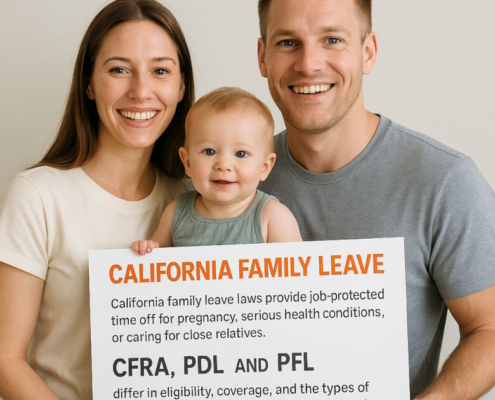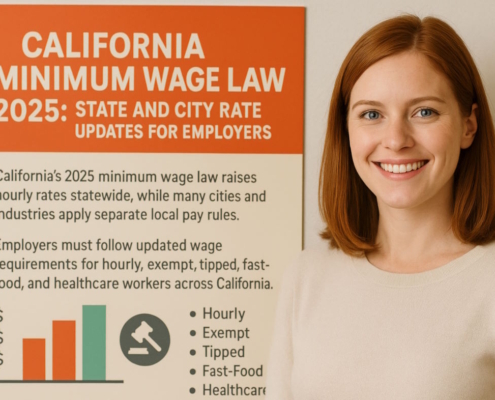Working Under the Table: Consequences and Legal Risks
Is It Illegal to Not Pay Taxes?
When employees are paid under the table, their benefits may be delayed or denied when filing for unemployment insurance (UI) or state disability insurance (SDI). Additionally, they may face audits for unreported wages and will not have check stubs, a Wage and Withholding Statement (Form W-2), or a way to verify their earnings. Working under the table creates significant tax issues and unfair burdens on compliant taxpayers.
Is It Illegal to Pay Under the Table?
Paying employees under the table is illegal and may result in substantial penalties, interest charges, and potential criminal prosecution. This practice may result in a large unplanned liability, including substantial penalty and interest charges for failing to comply with reporting requirements. Employers and employees both risk serious financial and legal consequences. For instance, an audited employer who cannot produce proper payroll records could face significantly higher tax liabilities and penalties compared to one who reports wages correctly. Is paying under the table illegal? The unequivocal answer is yes.
What is Under the Table Money?
“Under the table” means paying wages to employees by cash, check, or other compensation with the intent to evade paying payroll taxes. Paying under the table money results in evasion of obligations to state and federal agencies, making it a legal risk for all parties involved.
Who Benefits More From Being Paid in Cash: Employer or Employee?
Some employers pay cash under the table to avoid their employer tax obligation. They don’t want to contribute taxes or sign up for workers’ compensation insurance. Another reason employers pay cash under the table is so they can hire workers who are unauthorized to work in the United States. Other employers don’t want to deal with recordkeeping. However, whether an employer or employee benefits more from cash payments is complex, as both risk significant penalties.
Is Working Under the Table Legal?
Employers are required to deposit and withhold a variety of employment taxes, regardless of whether employees are paid in cash or by other means, such as direct deposit. Employers can use Form W-4 (Employee’s Withholding Allowance Certificate) to determine how much tax should be withheld. By paying employees under the table, employers effectively avoid paying taxes. Is working under the table legal? In nearly all cases, it violates state and federal laws.
Paid Under the Table: Risks and Challenges
Is It Illegal to Get Paid Under the Table?
Employees receiving under-the-table payments may encounter numerous issues, including unpaid wages, delayed payments, and lack of benefits like Social Security and Medicare. Employees are required to report all wages to the IRS, including cash payments. Failure to do so constitutes a federal offense. Is it illegal to get paid under the table? For employees, it is not necessarily illegal, but failure to report such income is.
I Get Paid Under the Table: How Do I Show Proof of Income?
Proof of income is vital for various reasons, such as securing housing, loans, or insurance. Employees lacking documented earnings may face challenges in these areas. Furthermore, years of unreported wages can negatively affect future Social Security and retirement benefits. If an employer is audited, the employee may become entangled in tax investigations. When asking “How to report cash income?”, maintaining detailed personal records is essential.
Are Under the Table Jobs Illegal?
California law mandates that employers report all wages and withhold applicable taxes, including UI, SDI, federal and state income taxes, and FICA contributions. Employers who fail to comply may face severe penalties under both state and federal law. Are under the table jobs illegal? In California, this type of employment is unequivocally against the law.
Risks of Cash Payments
What happens when employees are paid cash for working under the table? Cash payments under the table for the purpose of creating unreported employment are illegal and could result in prison time. An employee is required to report all wages to the IRS, including those that are paid in cash. Working under the table for cash is commonly associated with jobs such as babysitting, yard work, or bartending. Businesses dealing heavily in cash transactions are especially scrutinized.
Can You Pay Employees Cash?
Employers engaging in this practice risk criminal charges, loss of benefits eligibility, and financial penalties. The IRS employs sophisticated tools to identify irregularities, placing cash-intensive businesses under scrutiny. While employers can pay in cash, they must comply with all applicable employment laws, making “Is it legal to pay employees in cash?” dependent on tax compliance.
Is Paying Under the Table Illegal? Legal Considerations and Consequences
Is It Illegal Not to File Taxes?
When employees are getting paid under the table, taxes aren’t withheld from their wages. Employers paying cash under the table do not comply with employment laws. The IRS can audit your business to learn if you have been skipping out on paying employment taxes. If you don’t have records showing how much you paid employees and withheld, you will be penalized. Is it illegal not to file taxes? The consequences are severe, ranging from penalties to criminal charges.
Is It Legal to Pay Employees in Cash?
Reporting Requirements for Under the Table Pay
In California, a government agency must be notified of wages being paid. Failure to do so is illegal. Your employer may be avoiding taxes and more by paying you “under the table.” They must pay their fair share of everything listed below through withholdings from your cash payments:
- Overtime compensation
- Workers’ Compensation
- SUI (state unemployment insurance)
- SDI (state disability insurance)
- FUTA (unemployment insurance)
- Federal and state income taxes
- FICA (Social Security and Medicare)
- Various other employment benefits
Under the Table Employee Rights
When making cash payments, all employment laws must be complied with by an employer. To discuss your employment rights, contact a qualified attorney. Employees wondering “Is it illegal to be paid under the table?” should know their rights under labor laws.
How to Report Cash Income and Avoid Risks
Steps for Employers
Both employers and employees should prioritize lawful payroll practices. Employers must establish payroll systems that ensure proper withholding and reporting. Employees should demand wage statements and verify that taxes and deductions are accurately applied. Consulting professional accountants or employment attorneys can help businesses and individuals address concerns about payroll compliance and avoid the risks associated with under-the-table payments.
Employee Actions
If you are being paid under the table, request that your employer begin paying you on the books as soon as possible. If your employer refuses to comply, or if you have been mistreated by an employer paying you under the table, contact legal professionals to discuss your options and fight for the compensation you are due. For those asking, “I get paid under the table, how do I show proof of income?”, maintaining personal records and seeking legal advice are critical steps.
Employers must recognize that the survival of their business could depend on their ability to pay tax liabilities, penalties, and interest. Consulting with experienced legal and financial professionals ensures compliance, protects employees, and mitigates the financial risks associated with unreported wages.































